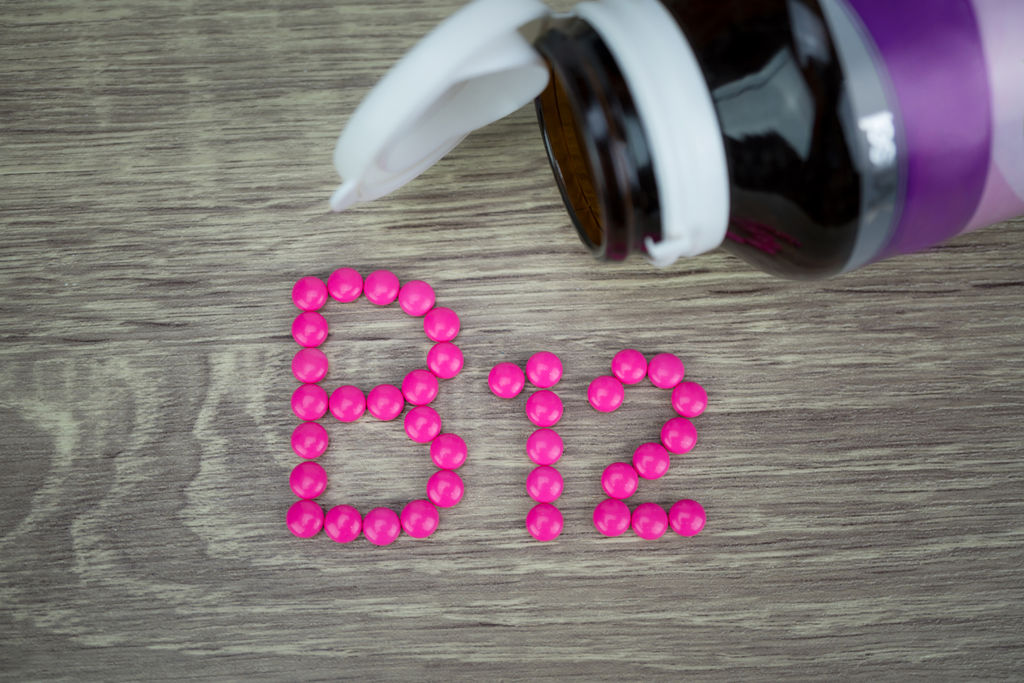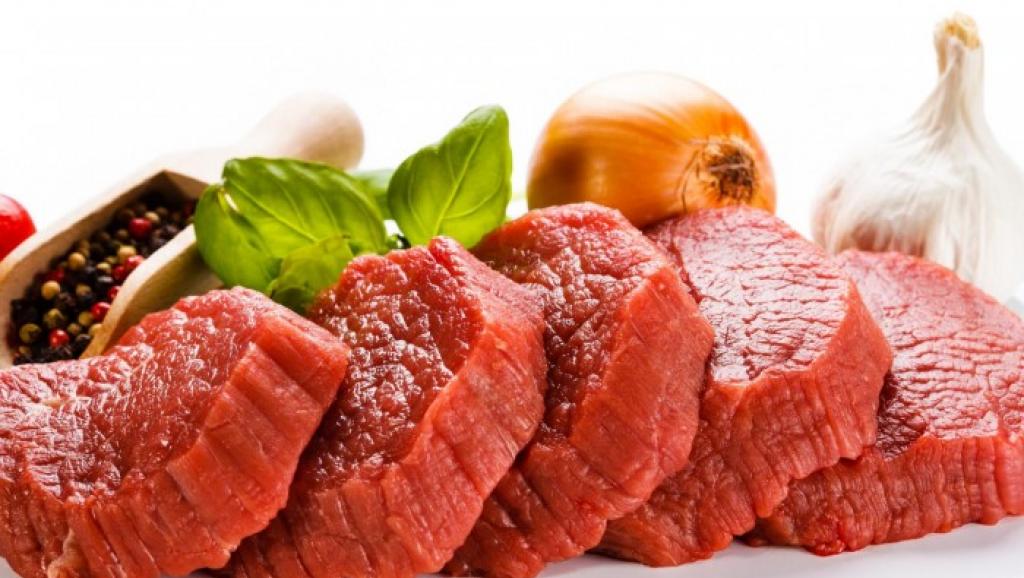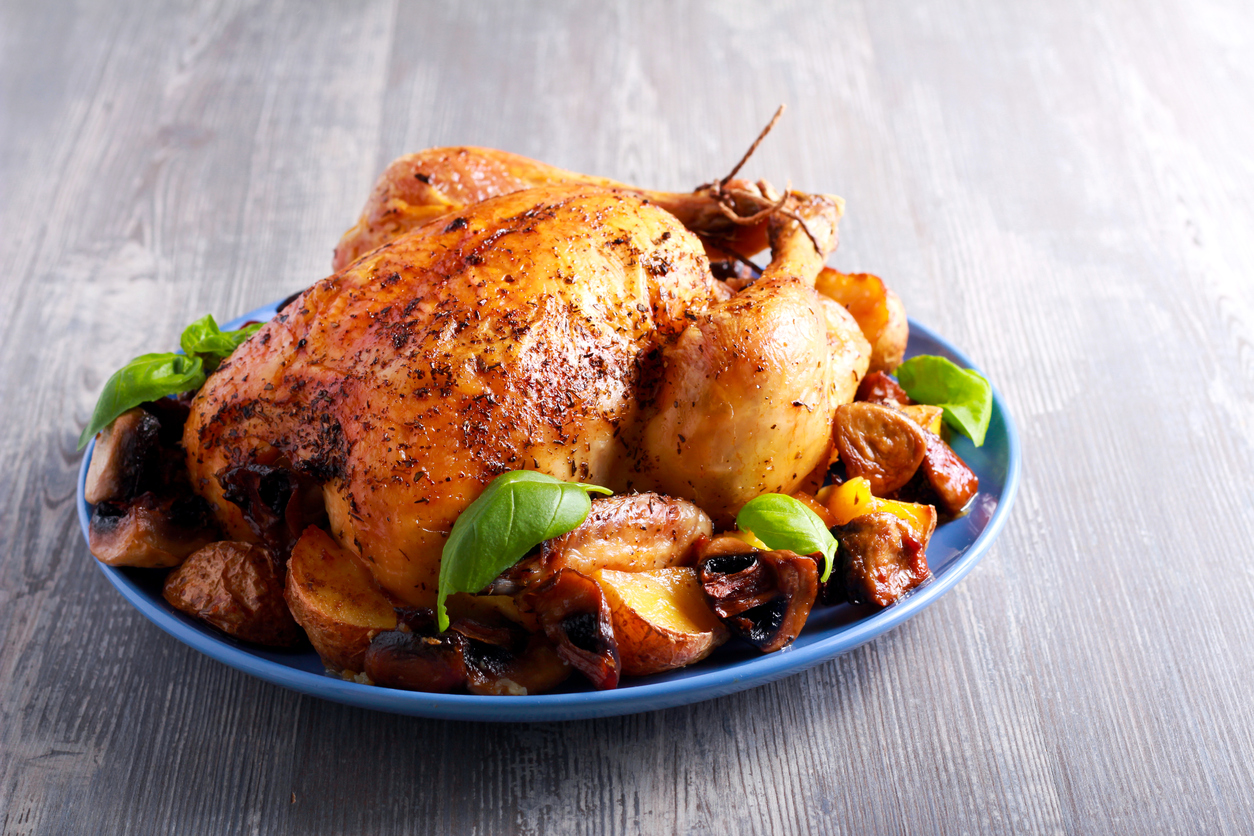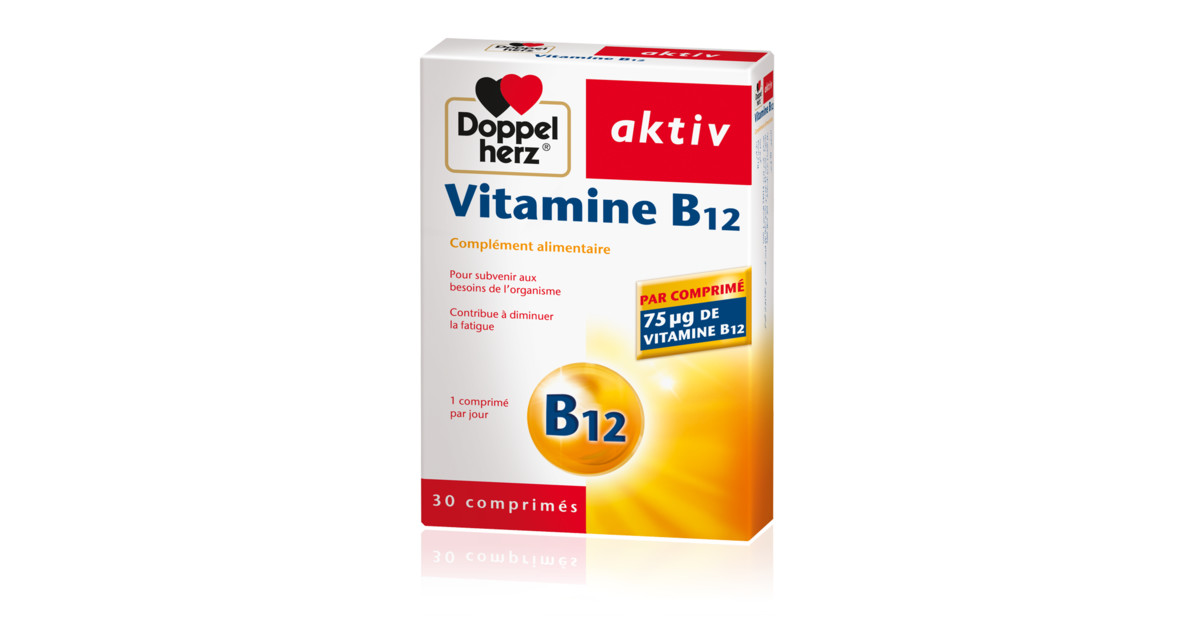Essential for cell renewal and the production of red blood cells. vitamin B12 also ensures healthy fetal development in pregnant women. This vitamin, also known as cobalamin, is often neglected in our diet. Yet it plays an essential role and deserves our full attention.
[buzzsprout episode='5883196′ player='true']
This content is part of the guide Blooness, the guide to the ideal human diet, the summary of which you can find here 🌱🥑

Properties of vitamin B12
Vitamin B12 belongs to the large family of vitamins B. This water-soluble vitamin owes its name "cobalamin" to its cobalt atom. It is essentially a red crystalline compound, hence its nickname "red vitamin".
Vitamin B12 is unique in that it can only be consumed in animal products. As a result, vegetarians, vegans and vegans are at greater risk of vitamin B12 deficiency.
Take control of your diet and never miss another chapter of the guide by subscribing to the Blooness newsletter 🙌

The role of vitamin B12 in the body
Vitamin B12 is involved in a number of synthesis reactions in the body, acting as a cofactor. It plays a major role in the production of red blood cells, white blood cells and platelets.
In the nervous system, it is involved in the manufacture of the myelin sheath, the tissue that covers neurons, guaranteeing their protection and performance in nerve transmissions.
Vitamin B12 ensures proper brain function and DNA synthesis. It reduces blood homocysteine levels when combined with vitamin B9. It also ensures cell renewal and good skin maintenance.

Recommended dietary intake of vitamin B12
The Agence Nationale de Sécurité Sanitaire de l'alimentation (Anses) recommends a daily intake of 2.4µg for adults, 2.6µg for pregnant women and 2.8µg for nursing mothers. Generally speaking, recommended daily intakes of vitamin b12 range from 2.4 to 4µg.
|
Age |
Vitamin B12 nutritional reference (µg/day) |
| Children aged 1 to 3 |
0,8 |
|
Children aged 4 to 6 |
1,1 |
| Children aged 7 to 9 |
1,4 |
|
Children aged 10 to 12 |
1,9 |
| Teenagers aged 13 to 15 |
2,3 |
|
Adolescents over 16 |
4 |
| Adults |
4 |
Foods richest in vitamin B12
Only foods of animal origin contain vitamin B12: meat and offal, dairy products, shellfish, eggs and fatty fish. Many breakfast cereals are also enriched with vitamin B12. Red and green algae, as well as spirulina, are also considered good sources of cobalamin.
The best food sources of vitamin B12
| Food | Vitamin B12 content in µg per 100 g of food (2) |
| Cooked lamb, veal or heifer liver | 42,5 à 74 |
| Cooked periwinkle or periwinkle, raw oyster | 24 à 39,5 |
| Mackerel or cooked herring | 15 à 19 |
| Canned cod liver | 15,7 |
| Canned sardines | 14 |
| Cooked shrimp | 5 |
| Canned tuna | 4 |
| Cod, pollack or cooked salmon | 2 à 3 |
| Grilled beef steak | 2,7 |
| Emmental, mozzarella, gouda, camembert | 1 à 2,5 |
| Hard-boiled egg | 1,1 |
| Roast chicken | 0,5 |
For example: 2 eggs + 30 g of Emmental cheese (one portion) + one portion of fish will cover more than 100% of the recommended intake for an adult.
Vitamin B12 is particularly sensitive to heat and light. It easily escapes in cooking water. To preserve it, keep food away from light, and prefer steam cooking. It is also advisable to avoid reheating dishes several times.

The main causes of vitamin B12 deficiency
Increased vitamin B12 deficiency may be observed in people following a vegetarian or vegan diet. Alcoholics, pregnant women and people taking oral contraceptives are also at increased risk of vitamin B12 deficiency.

Vitamin B12 deficiency generally results in anemia, reduced nerve sensitivity, altered metabolism of neurotransmitters and nerve disorders, intestinal disorders, disruption of hormone metabolism, cardiovascular disorders, increased risk of stomach cancer and even impairment of vitamin B9 status.
Vitamin B12 supplementation
Depending on the case, the doctor may recommend a supplement of
- 1 µg taken three times a day.
- 10 µg taken once a day.
- 2000 µg once a week.
- 5000 µg taken once every two weeks.

Specialists validate all dietary supplements made with Cyanocobalamin. This is a stable, inexpensive vitamin of bacterial origin. Other forms are also accepted, such as methylcobalamin.
Caution: all vitamin B12 supplements must be taken under the supervision of a qualified physician.
Next chapter: All about minerals.
Previous chapter: vitamin B9.


